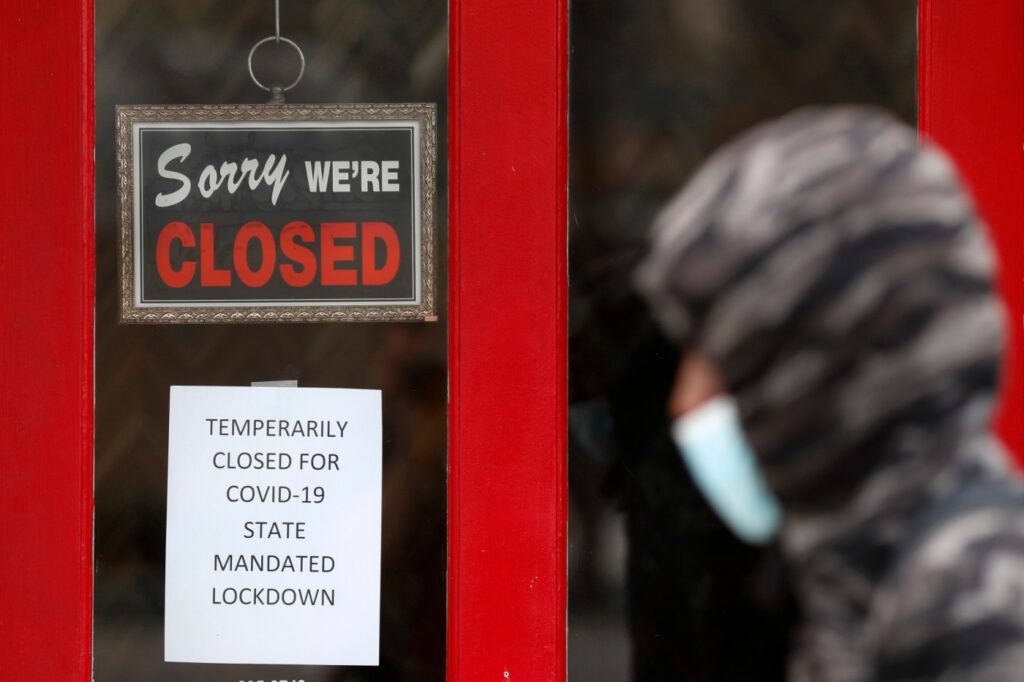
An analysis of studies of the effects of lockdowns on COVID-19 mortality has just been released by a team of researchers at Johns Hopkins University, and their conclusion is depressing.
“Our study finds that lockdowns had little to no effect in reducing COVID-19 mortality,” they wrote. “However, lockdowns during the initial phase of the COVID-19 pandemic have had devastating effects.”
One of the papers reviewed by the Johns Hopkins researchers, “COVID-19 Pandemic: A Review of the Global Lockdown and Its Far-Reaching Effects,” published in the journal, “Science Progress,” concluded that “the impact of the lockdown has had far-reaching effects in different strata of life, including; changes in the accessibility and structure of education delivery to students, food insecurity as a result of unavailability and fluctuation in prices, the depression of the global economy, increase in mental health challenges, wellbeing and quality of life amongst others.”
Other studies reviewed by the researchers found that lockdowns had contributed to political unrest, domestic violence, and the undermining of liberal democracy.
Particularly depressing is a 2021 study cited by the researchers titled, “Learning Loss Due to School Closures During the COVID-19 Pandemic,” published in the journal, “Proceedings of the National Academy of Sciences.” It found that “children, on average, learn almost nothing in the weeks they received virtual education,” with the effect “particularly pronounced in less educated homes, where the negative effects for children with low-educated parents were 60 percent greater than those from well-educated homes.”
The researchers found similar conclusions in numerous other studies. “The losses in early development are significantly greater among poor and poorly educated families,” they reported.
Published in May, “A Literature Review and Meta-Analysis of the Effects of Lockdowns on COVID-19 Mortality” follows a working paper of the same title published in January and answers its critics, among them Neil Ferguson of Imperial College London. If his name is familiar, it’s because his influential but wildly incorrect computer modeling projections of coronavirus disease and death in the spring of 2020 set off an international panic in government offices, and lockdowns.
Ferguson’s model simulation at Imperial College predicted that a “suppression” (lockdown) strategy would reduce COVID-19 mortality up to 99%. It didn’t work out that way.
The Johns Hopkins researchers, who are economists, began by searching and screening over 19,000 studies, seeking all available empirical evidence to determine the effect of lockdowns on COVID-19 mortality. For perspective, they found that more people are killed by the flu every year than were saved by lockdowns.
Related Articles
George W. Bush is still just a war criminal to me
The Tragic Kingdom of Anaheim
Four towns and four stories frame housing crunch
Let’s build housing at the supermarket after all
California has failed the homeless and the mentally ill. It’s time for change.
Far from a 99% reduction, the researchers found that COVID-19 mortality was reduced by 3.2% by the average lockdown in Europe and the U.S. in the spring of 2020, 2.0% by shelter-in-place orders and 10.8% by specific non-pharmaceutical interventions such as school and workplace closures, travel restrictions and border closures.
The Johns Hopkins team said their findings were “consistent with the view that voluntary changes in behavior” were helpful in mitigating the pandemic,” and they called for more research “to determine how voluntary behavioral changes can be supported.” But without evidence that lockdowns have “large and significant reductions in mortality,” they wrote, “lockdowns should be rejected out of hand as a pandemic policy instrument.”
With public health officials in California again warning that restrictions may be reimposed, we should pay close attention to the costs, and especially to who is paying them.
